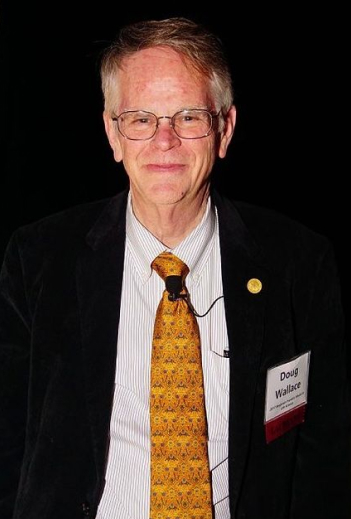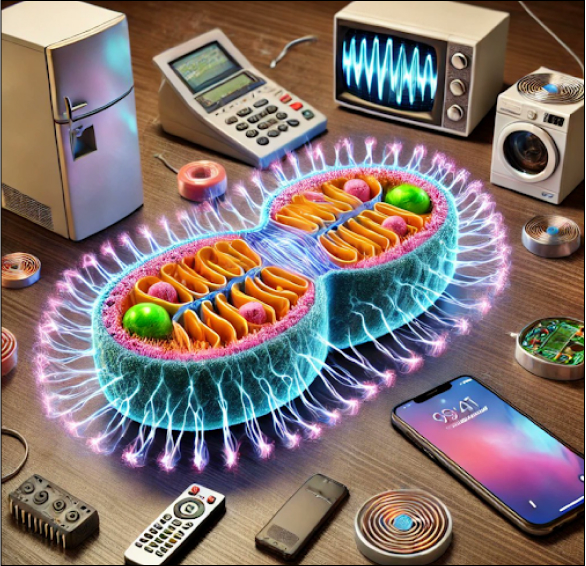If mom’s in trouble we need to know.
It turns out the nuclear genome (from mom and dad) isn’t as influential as we once believed. In fact, mom’s genome is calling the shots on our health. The success or failure of her genome — and the running of our energy “powerhouses” — depend on the signals she gets from her environment.
And disease is exploding in lockstep with our mitochondria’s compromised environment.
Let’s take a Squint.

Our Sixth Sense to Disease
Research is maturing and we are now learning that the mitochondria isn’t just the “powerhouse” of the cell. It’s actually our sixth sense, our antenna to the world and how we thrive or succumb to disease. In fact, our mitochondria is a built-in system to keep us alive, repair problems and regenerate us from disease if we get ourselves in a pickle.
And guess what? We’re in a pickle. A BIG pickle. People are really sick.
In 2022 alone, the United States saw 702,880 deaths from heart disease, 608,371 from cancer, 147,382 from chronic lower respiratory disease, 120,122 from Alzheimers, and 101,209 died from complications of diabetes. These numbers don’t even account for those who are living with and struggling against these diseases daily.
As Dr. Doug Wallace, Chief of Pediatrics at the University of Pennsylvania, explains, nearly 90% of disease is attributable to our mitochondrial genome, not those relatives we keep blaming for our crappy genes. In fact, epigenetics (the way we change our mitochondrial genome with our modern life) is having the greatest impact on the development of modern disease.

What Does the Research Say? Mitochondrial DNA Mutations Are Making Us Sick
Research shows that we are becoming overwhelmed by disease attributed to mitochondrial dysfunction. Over generations, these mitochondrial mutations are stacking up. And according to Dr. Doug Wallace, and many others, we are stacking up quite a few mitochondrial mutations that are leading to 85-90% of our diseases.
Dr. Doug Wallace’s pioneering work with inherited mitochondrial disease led him to investigate the potential mitochondrial cause of a variety of degenerative diseases. He accurately hypothesized that mutations which are causing damage to mitochondria contribute to ailments such as heart disease, diabetes, chronic muscle weakness, movement disorders and dementia. This finding, combined with the staggering levels of death our population is suffering from currently, should shock us into making some dramatic changes (to help our mitochondria thrive).

Modern Living as the Root Cause of Illness
Could our modern environment be causing our mitochondrial DNA to mutate, leading to diseases we attribute to “bad genes”? If circadian rhythm drives mitochondrial health and our mitochondria are suffering, should we re-examine our relationship with light and how it’s affecting our cellular engines?
It turns out that how we treat our mitochondria—with our environmental decisions—makes all the difference in how we express our genes and how often and how severely we get sick. As far as health goes, we keep thinking it’s a diet that needs improving or an exercise program that needs tweaking. Something more important is making our genes act badly. And the answer is the light environment we are providing our mitochondria.
Our mitochondria need sunlight to function and darkness to repair. However, we have been giving them years of indoor living and bright nights of TV screens, shift work and computers.
And our mitochondria – our “powerhouses” – are now running out of power. And cancer is now taking over as the new “powerhouse” taking over our cells.

Mitochondrial Medicine
Dr. Doug Wallace has taught us that the health of our body depends on the energy made by our mitochondria. Understanding how a mitochondria functions is FUNDAMENTAL to preventing or reversing just about any disease. If your cellular engine is broken, your powerhouse is powerless.
That’s why we focus on the Squintessentials to keep us healthy. A healthy mitochondria is the key to our longevity. Let’s keep Squinting and finish up our mitochondria story with understanding the legacy.


